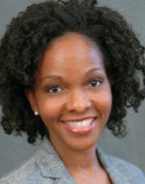BLACK BEAUTIES

by
IMANI PERRY
_____________________
Imani
Perry is an interdisciplinary scholar who studies race
and African American culture. She is a Princeton professor who
teaches at the Center for African American Studies and in the
Program for Law and Public Affairs. Imani is the author of Prophets
of the Hood: Politics and Poetics in Hip Hop (Duke University
Press, 2004). This article was originally published in The
Public Intellectual. You can follow Imani Perry
on Twitter: www.twitter.com/imaniperry.
I read
my friends’ tweets about the Miss Universe Pageant last
summer, but I didn’t watch it. I’m an old-fashioned
feminist when it comes to pageants. They turn my stomach. I
find them embarrassing and absurd.
But
I can’t be preachy about my dislike.
After
all, I love fashion magazines, the ones filled with fantasies
of over-the-top consumption and impossible beauty and I won’t
apologize for that indulgence, so I have no judgment for pageant
watchers. Pageants just aren’t for me.
Still,
the tweets piqued my curiosity, and I looked at the Miss Universe
contestants online. Lo and behold, I was shocked when I realized
that Miss Ecuador, Miss Honduras and Miss Nicaragua were all
Latinas of African descent.
Only
recently have noticeably Indian and African looking women begun
to be featured on Latin American television and film, and still
in small numbers. Despite substantial African-descended populations
throughout Latin America, they remain even more invisible in
U.S. popular culture, notwithstanding the writings of Junot
Diaz, Veronica Chambers and Rosario Ferre, among others, who
insightfully depict the fabric of race, history and culture
in Latin American nations.
I must
admit that I was excited to see these brown-skinned contestants,
along with those from continental Africa and the Caribbean.
The excitement was similar to the thrill I had earlier this
year when I encountered the work of fashion photographer, Mario
Epanya. Epanya shared his photos in a viral web campaign to
have Condé Nast approve an African edition of Vogue
Magazine (which they refused). His models have richly coloured
bodies, full lips and bright eyes. They are adorned to dramatic
effect. They are frankly, stunning.
I don’t
quite know what to make of my reaction to this brand of black
beauty. What does it mean for me as a feminist? Third and fourth
wave feminists have argued that we should reclaim make-up and
sexiness, and cast aside the old image of a feminist as a woman
with a naked face and hairy legs. Fine, but the reality is that
our beauty culture still plays a significant role in women having
poor body images, lowered self esteem and a feeling of intense
competitiveness with other women.
I have
often found myself wishing that instead of encouraging every
woman to feel she is beautiful (which seems to be the central
marketing device of most cosmetic companies), that we could
find a way to make it such that beauty is not at the center
of self-esteem. Who cares if one is beautiful or not? There
are so many other ways to be special, of value, attractive,
interesting, sexy! As girls, we are sold an idea of an ‘ideal
way to be’ that depends far too much on surface and not
enough on substance, and we tragically carry that on our shoulders
into womanhood.
And
yet, I find myself honestly happy about these images of gorgeous
women with hair and skin and lips like mine.
As
a black woman, for centuries now, flesh like my flesh has carried
the burden of presumed inferiority. Black women have been cast
as hypersexual or desexualized, always available yet undesired,
ridiculous and often ugly, the mules of the world. Notwithstanding
a few beauty icons, public figures and celebrities, these stereotypic
representations are still common. And perhaps this is why the
fantasy of a beauty culture that includes black women has so
much allure. Fantastic images of black women, who are desired
yet untouchable, pristine, flawless and admired, lie so contrary
to how we have been cast throughout history. And that feels
kind of good.
But
of course, as enjoyable as those images can be, we must not
allow them to distract us from the daily work of feminism and
gender liberation. The recent reports of sexual violence in
Haiti and the Congo, sexual exploitation and trafficking here
in the States, honour killings in the Middle East, are each
the tip of a very large iceberg. The iceberg itself is a global
culture in which the devaluation of humanity and the denial
of fundamental respect are all too common. Feminism is, at it’s
very best, a call for humanism with a global reach. Pretty is
nothing compared to that.
My
personal resolution on the beauty issue is this: When images
of physical beauty serve to diminish the depth of a woman’s
personhood, we should reject them. And when they seem to restore
an appreciation of that which has been devalued, or to be attached
to an open sense of expressiveness, play and fun, then we should
feel free to enjoy them. But in either case, our eyes must always
be focused on actual lives, not just screens and pages in a
magazine.